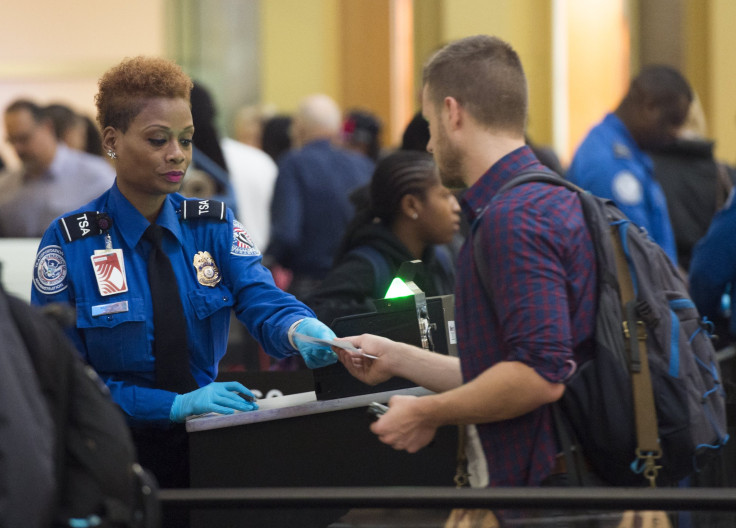Airport Security New Policies Will Require Full-Body Scans Only For 'Some' Passengers

Airplane passengers will no longer be guaranteed a chance to opt out of electronic security screenings, according to a U.S. Transportation Security Administration report. The agency had previously allowed fliers to undergo a pat-down instead before boarding a flight.
The report, issued last Friday, said travelers could still decide against full-body electronic screenings, but some may still be subjected to an "advanced image technology" electronic screening, the Guardian reported. It was not immediately known how TSA agents will determine which passengers will receive the screening.
Generally, passengers undergoing screening will have the option to decline AIT screening in favor of a pat-down. Some passengers… 1/2
— TSA (@TSA) December 22, 2015
…will still be required to undergo AIT screening as warranted by security considerations in order to safeguard transportation security. 2/2
— TSA (@TSA) December 22, 2015
“Passengers undergoing screening will still have the option to decline an AIT screening in favor of a physical screening,” said TSA spokesman Mike England, in a statement to the Guardian. "However, some passengers will still be required to undergo AIT screenings as warranted by security considerations in order to safeguard transportation security.”
AIT screenings monitor for nonmetallic images and liquids. "TSA is updating the AIT PIA to reflect a change to the operating protocol regarding the ability of individuals to opt out of AIT screening in favor of physical screening," the report said. "While passengers may generally decline AIT screening in favor of physical screening, TSA may direct mandatory AIT screening for some passengers."
The TSA said the new policy would take effect March 3, the Guardian reported.
“We could have it out,” said Jim Harper, a senior fellow at the Cato Institute, a think tank in Washington, D.C. “And we could see whether this increment on the regulation, or the regulation as a whole, was actually a rational regulation. There’s been plenty of evidence out there that the machines don’t work really well, that it’s easy to game the machines.”
It was not immediately clear what prompted the policy change during the busy holiday travel season.
© Copyright IBTimes 2025. All rights reserved.






















